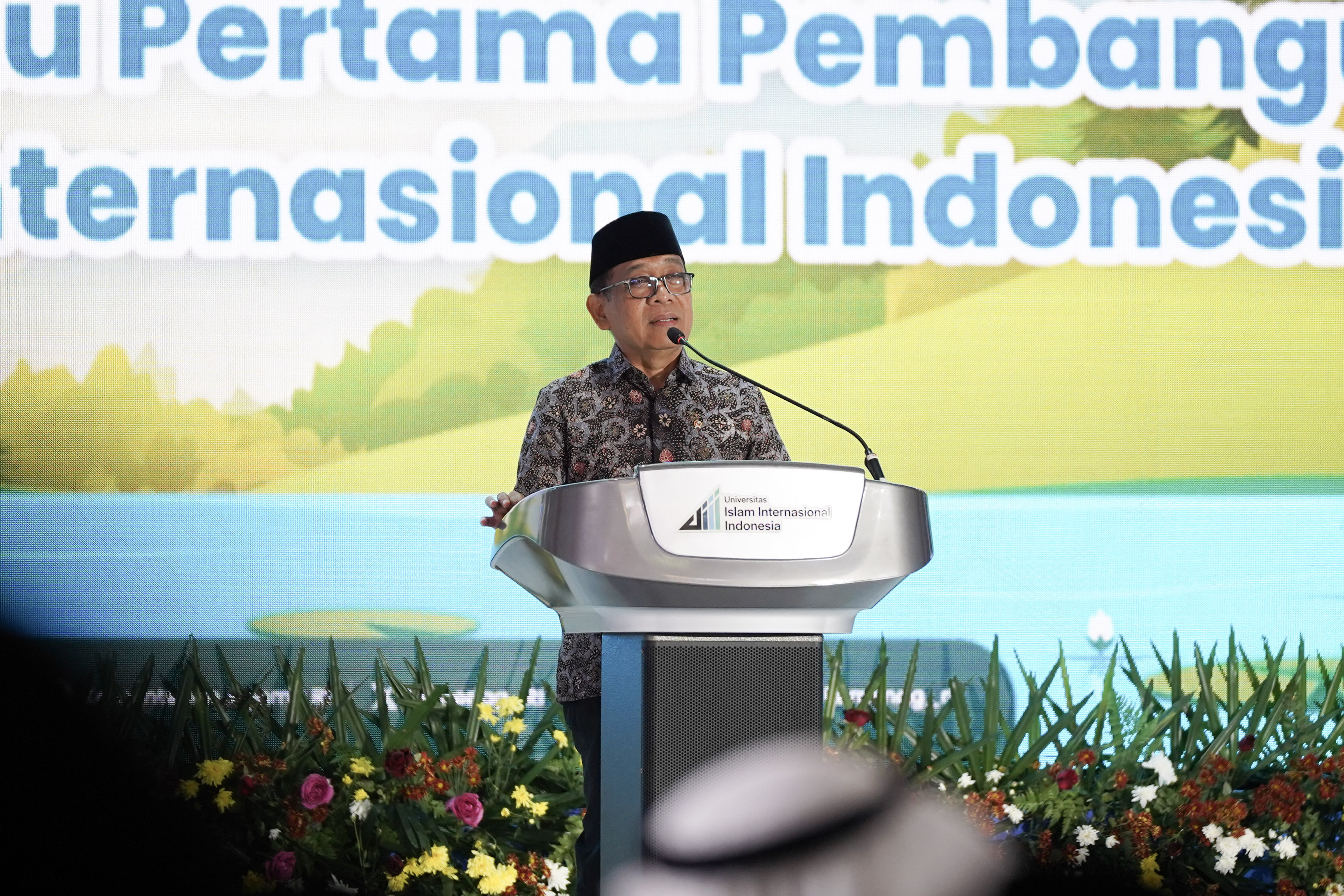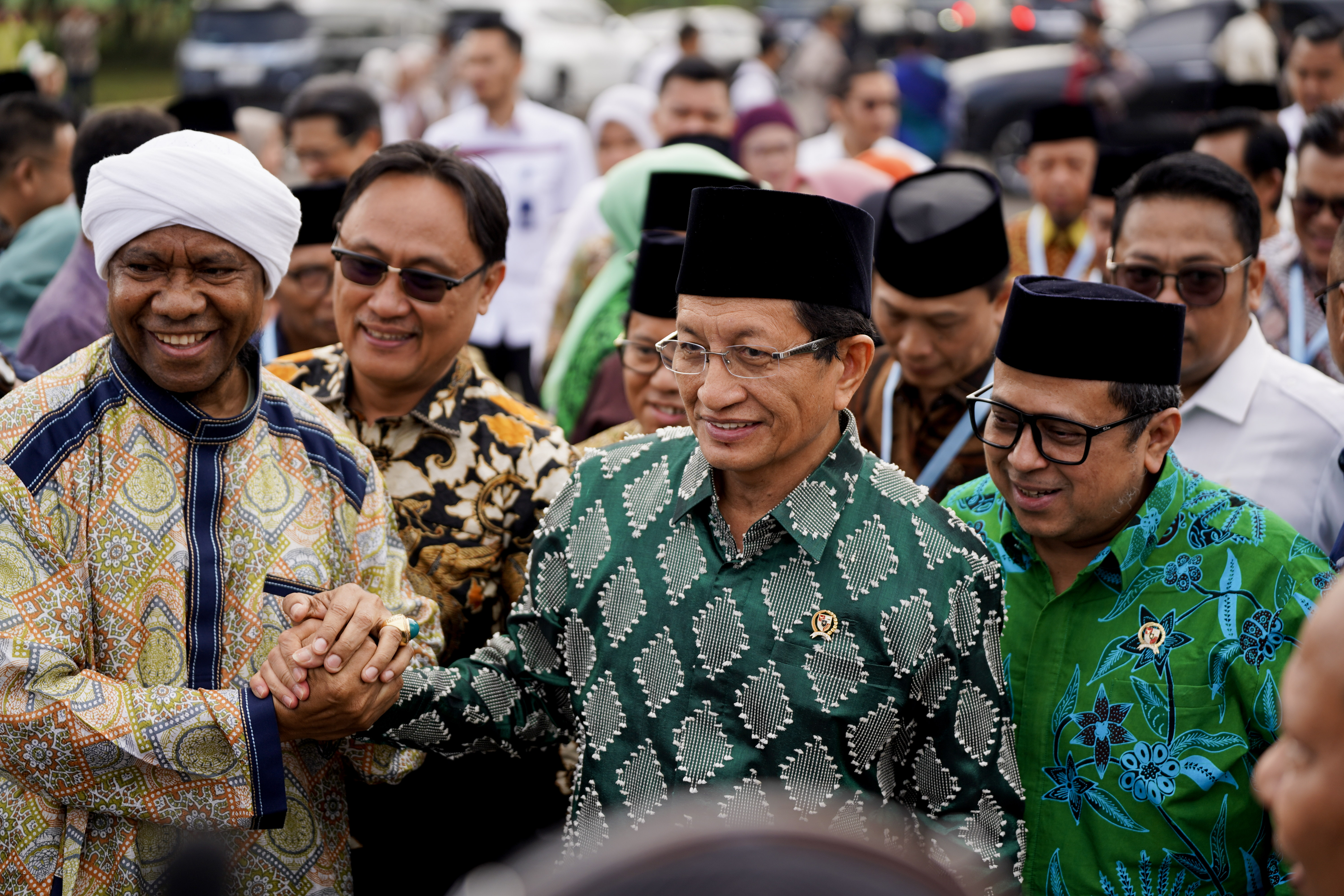

At the official launch of Indonesia’s One Million Matoa Trees Movement, Professor Dr. Nasaruddin Umar, Indonesia’s Minister of Religious Affairs, spoke passionately about the future of ecological responsibility. His address focused not only on the importance of environmental sustainability but also on a transformative shift in the way we understand our relationship with the earth through the lens of religion.
Professor Nasaruddin introduced the concept of ‘eco-theology’, a movement that emphasizes the integration of environmental stewardship with religious principles. He highlighted how the traditional theological worldview, which often centers on domination over nature, needs to be re-envisioned. In his view, many religions, especially Islam, have overemphasized the masculine traits of God and humankind, leading to a worldview where nature is seen as an object to be controlled and exploited.

“The theology that has shaped our interaction with the environment has been overly masculine,” he explained. “It focuses on power struggles and the idea that humanity is the sole ruler of the earth.” This, he argues, is reflected in how the divine is often depicted—as a powerful, authoritative figure, rather than a nurturing one. For him, a paradigm shift is required, proposing that the divine essence should be seen more in its feminine aspects, rather than masculine ones.
Drawing on Islamic teachings, he pointed out that 80% of the names of God in the Asma’ul Husna (the 99 names of God) are feminine attributes such as Ar-Rahman (The Most Compassionate) and Ar-Rahim (The Most Merciful), while masculine traits such as Al-Jabbar (The Compeller) and Al-Qahhar (The Conqueror) are far fewer. This, he argues, presents a significant theological paradox, saying that while God is predominantly portrayed as feminine (compassionate and nurturing), human beings often embody the masculine approach in their treatment of nature.
He believes this contradiction has led to an environmental crisis, where nature is seen as an object to be exploited rather than a creation to be cared for. In the Islamic tradition, humanity is entrusted with the role of khalifah (steward) on Earth, but instead of nurturing the world, the masculine-driven theology has resulted in widespread ecological degradation

Hence, as a vision for a green spirituality, the minister calls for a radical transformation in both thought and action. He emphasized that religion must not only be about spiritual practices or moral lessons but must also be a guide for ecological responsibility. In his view, this means fostering an understanding that destruction of nature—whether through pollution, deforestation, or neglect—is a sinful act and a ‘betrayal’ of faith.
“To truly embody the teachings of the divine,” the minister said, “we must restore the balance in our relationship with nature. We must adopt a theology that sees the earth not as a mere resource, but as a sacred trust.”
Professor Nasaruddin’s call for eco-theology is a call to deconstruct a dominative, masculinized view of the Divine and replace it with one rooted in compassion and care. By reclaiming the feminine in our understanding of God, he reframes ecological responsibility as a sacred duty. This green spirituality challenges us to treat the Earth not as property, but as a divine trust—betrayed when neglected, honored when protected.
Universitas Islam Internasional Indonesia